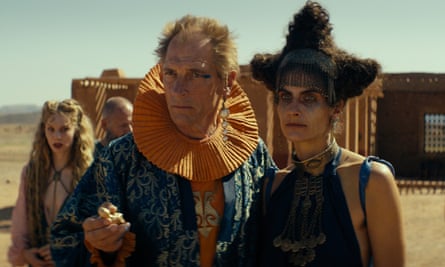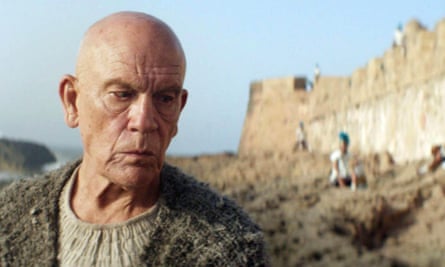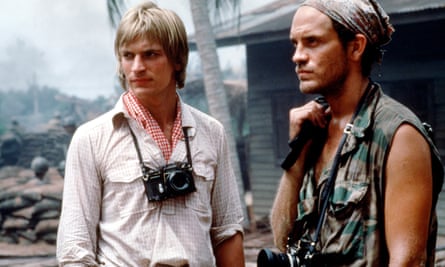TikTok user “Anniesgotabun” said she told her daughter she needed to smile more after their final rehearsal… with hilarious and horrifying results.
28 Funny Tweets From November 2022 So Far
“Don’t expect a ‘bless you’ after the third sneeze. Let’s get it together.”
Girl Gets 1,000 Stitches After Severe Dog Attack at Friend’s House: ‘She Won’t Be Able to Smile Again’
On Saturday, 6-year-old Lily Norton’s life was changed forever. The young girl from Chesterville, Maine, was hanging out at a friend’s house when things went south.
The family was pet-sitting a friend’s pit bull, but there didn’t seem to be any issue until the girls went to play a game and the mom went to use the bathroom.
“They were going to sit at the table and play cards,” Lily’s mother, Dorothy Norton, told WMTW-TV in Portland. “The little girl that Lily went up to play with went to go get the cards. Lily sat at the table, and the dog attacked her.”
The mother heard her daughter screaming, ran out of the bathroom and entered the kitchen to see the dog clamped down on Lily’s face.
Thankfully, the child put her shoulders up during the attack, which protected her neck, and the dog released her immediately when it saw the mother walk in.
Lily was rushed to a hospital in Farmington and then life-flighted to Boston Children’s Hospital.
She went through an 11-hour surgery in which she received more than 1,000 stitches to close the gashes that ran from her neck to under her eyes.
“She can’t talk at all right now, but she has been very responsive today,” Norton said. “She’s been looking at me, blinking, and telling me what she needs.
“I’m hoping. She already looks good.”
Family friend Jackson Pitcher started a GoFundMe to cover travel and other costs for the family, and by Thursday afternoon it had raised more than $15,000 toward a goal of $6,500.
WARNING: Some viewers might find the post-surgery photo below disturbing.
For now, Lily remains sedated to help her heal and reduce the chances of her scratching at her face. She’ll also be on a breathing tube until at least Saturday, at which point she’ll be undergoing another surgery.
While her mother remains hopeful for a positive outcome, doctors have cautioned the family that there will be noticeable differences.
“Her salivary glands aren’t working … and doctors said she won’t be able to smile again,” Pitcher said, according to the Sun Journal. “Muscles are too damaged.”
The family deliberated over whether to share a picture of Lily’s face post-attack but decided it was important for people to have visual evidence of how serious it was.
“Everybody hears about dog attacks, but they can’t really picture in their head what that looks like,” Pitcher said. “So, we put it up.”
Chesterville Animal Control has not commented on the incident, saying it’s part of an open investigation, but the Norton family is working with local law enforcement to ensure the dog is euthanized.
The post Girl Gets 1,000 Stitches After Severe Dog Attack at Friend’s House: ‘She Won’t Be Able to Smile Again’ appeared first on The Western Journal.
Aubrey Plaza Jenna Ortega SAG Awards: Funny Reactions
Aubrey Plaza and Jenna Ortega were perfectly deadpan together while presenting at the 2023 SAG Awards, and now I need them to star in everything together.
John Malkovich on best friend Julian Sands: ‘Jules was such a storyteller, and so, so funny’ | John Malkovich | The Guardian
One of the last conversations John Malkovich had with Julian Sands, his best friend of 40 years, concerned how to prepare yourself for death. You can see that conversation in their new film, Seneca – On the Creation of Earthquakes, which premiered at the Berlin film festival this week. Malkovich fears it will be their last together.
Malkovich plays the Stoic philosopher of ancient Rome, an adviser and speechwriter to the despotic emperor Nero. In one scene, Seneca tells his friends: “Remind yourselves: we die every day. Death is stalking us everywhere, so it’s useless to fear or dread it.”
His audience includes Rufus, played by a spiky-haired Sands dressed in an orange ruff, silver bauble earrings and a silk gown. He sips wine and hangs on Seneca’s every word.
“Say a knot strangles you, or you fall off a cliff on to the rocks. However you go, even if it’s a ghastly thing, at least you die fast,” Seneca says. He briefly fakes his own death, falling into the lap of Rufus’s beautiful wife to do so, before rising again to tell his guests: “Kids, drink up, it’s later than you think.”
The film, says Malkovich, is “a pretty fitting tribute” to Sands, who went missing during a hiking trip in California more than a month ago. Postcards showing Sands as Rufus in the Moroccan desert, where filming took place, are laid out on a glass table in front of him.
Malkovich has little time for stoicism himself, he says. He has long stopped asking the question posed by Seneca in the film: why do bad things happen to good people? “And I don’t agree with Seneca that we choose the way we go,” he adds.

No trace of Sands has been found, but Malkovich says he is reassured the man he calls “my closest friend” was last seen doing something he loved. “I haven’t really talked about what happened with Jules,” he says. “But, in a way, it’s a choice, because he was an inveterate mountain climber/hiker. He was always tramping off to Kilimanjaro, or Antartica, or the Andes, or the Alps – a very experienced climber who’d been through very hairy experiences.
“I suppose the particular conditions on the ground that day on Mount Baldy must have led to some sort of catastrophic and immediate error that was irreversible. That was my instinct upon hearing it. But he knew what the conditions were, and that’s what he loved to do. He found great solace in the solitude of that.”
Sands was wont to go off on solo adventures, he says, “which is quite wild in itself, but he’s a boy who grew up wild on the moors and – despite being someone who could be incredibly erudite and polished – had always kept that wild part of himself”.
He wheels back to the film. “But I certainly don’t think all people choose their deaths. Some die horribly from myeloid leukemia when they’re three years old. I don’t think that’s a choice; I think that’s a pretty grotesque notion.” His gaze drifts upwards as he plucks a quote from a play he says he is preparing. “Death, we finally meet up with it by chance on the hazardous path from one light to another and we say to ourselves, so that’s all it is?”

Malkovich met Sands on the set of The Killing Fields in 1983 – two years before Sands’ breakthrough role in A Room With a View – and was immediately drawn to his wit and intellect. They worked together on a range of projects over the decades, and lived together for a while. Today, Malkovich alternates between past and present tense when speaking about Sands, his voice raspy and wistful.
“I love Jules. He was someone who was very, very clever. I know his ex-wife, Sarah [Sands, the former editor of the Evening Standard and Radio 4’s Today], terribly well and their son, Henry, is my godson. And I introduced Jules to Evgenia [his wife, also a journalist], who’s an old, old friend. I know their daughters [Natalya and Imogen] well. But I unfortunately never got to go up to Yorkshire with him. It’s a great loss.”
Speaking to Malkovich is a singular experience. He has a sartorial elegance – chaffinch-patterned shirt, matching kerchief, chocolate-brown tailored Sherlock-Holmes-style jacket – that is exquisitely out of place in scruffy Berlin.
Sign up to Film Weekly
Take a front seat at the cinema with our weekly email filled with all the latest news and all the movie action that matters
after newsletter promotion

In our brief conversation, he finds time to question the use of the word “pandemic” to describe Covid, suggesting instead “mass hysteria or a series of stupidities and mistakes, which if nothing else reflect absolutely terribly on science”.
He then moves on to his avoidance of politics. “If it was honestly about solving societal problems, I’d be all for it.” Rather, he says, politics is about “power and corruption, narcissism and insanity, incompetence, stupidity, dishonesty … the list goes on. What would happen if every time a politician told a lie, a demonstrable lie, they had to retire from politics? Leave the playing field permanently and go and, say, work in a charity, like Profumo did. How many would there be left?”
Sands’ disappearance, and the recent arrival of a granddaughter, have galvanised him. “I’ll be 70 in December,” he says. “Do I have a day, a month, a year, 10 years? No idea. Time seems even more capricious than when I had my own children. You miss so much; it goes so fast.” But he has no desire to leave a lasting mark. “I don’t really care to have a legacy or history.”
Nor, he says, is he bothered about the reception he receives now. He eagerly discusses the recent case of a German ballet director who smeared dog faeces on the face of a critic in revenge for a negative review.
“I think it’s terrible! To attempt to silence critics or even interact with them about their critique is a violation. Toughen up! It’s a mistake by those in the public eye to think that when you enter the public square it’s all going to be tropical drinks on the veranda and bouquets of flowers.”
Malkovich knows of what he speaks. In his 2017 stage show The Music Critic, he plays a vile reviewer who denounces the work of Beethoven, Chopin and Prokofiev – before musicians exact their revenge. One write-up of the show was so poor that it made him “roll off the banquette in my home laughing so hard I was crying”.
The model of stoicism in this regard, he says, was Harold Pinter: “When The Caretaker opened in Düsseldorf, he took 54 curtain calls, all to boos.” Malkovich and Sands worked frequently with Pinter and loved reminiscing about the man. “He was such a terrific storyteller, Jules, and so, so funny. Since the day we met, I could talk to him about anything, and he could talk to me about anything…” He loses his train, then jolts himself back to the room. “But that’s the thing – you can’t do anything about it. Could I have envisaged Jules at 80?” He looks at the ground and his voice trails away. “I don’t know.”